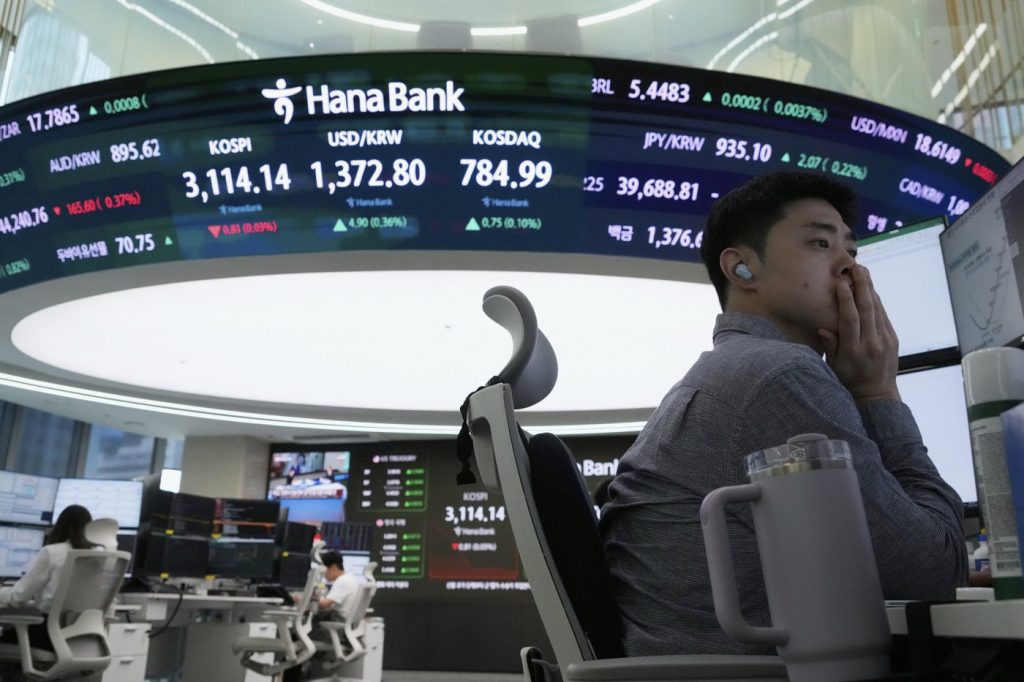Shares in Asia exhibited mixed results on Wednesday, following a volatile trading day on Wall Street. The fluctuations came as the Trump administration continued its campaign to secure more favorable trade agreements with various nations worldwide.
In Japan, the Nikkei 225 posted a slight increase of 0.2%, reaching 39,764.02. South Korea's Kospi also saw a rise of 0.5%, reaching 3,132.02. Both Tokyo and Seoul are making headway on a trade deal with the United States ahead of the higher tariffs scheduled to take effect on August 1.
However, Stephen Innes from SPI Asset Management noted that there are significant challenges regarding sectoral carve-outs. He mentioned that both Korea and Japan could be looking for exemptions for their automobile and steel exports but warned that Washington is unlikely to accommodate these requests.
On the other hand, Chinese markets experienced mixed results. The Hang Seng index in Hong Kong saw a decline of 0.7%, finishing at 23,970.39, while the Shanghai Composite index experienced a modest increase of 0.3%, ending at 3,507.69. In Australia, the S&P/ASX 200 index also slipped by 0.4%, landing at 8,559.30. India's BSE Sensex saw a slight dip of 0.2%, finishing at 83,570.86.
In the commodities market, oil prices fell, and the U.S. dollar strengthened against both the Japanese yen and the euro. Mizuho Bank commented on the situation, emphasizing that the looming tariff deadlines detract from more significant and pressing sectoral tariffs, which could potentially disrupt global industrial ecosystems. They indicated that these tariffs aim to isolate China from its trade partners, supply chains, and markets.
The bank also cautioned against underestimating the potential backlash when China retaliates against the U.S. and nations it views as allied with the U.S. This could lead to significant consequences in the global market.
In the U.S. on Tuesday, the S&P 500 index dipped by 0.1%, a day after experiencing its largest loss since mid-June. Despite the dip, the benchmark index remains close to its all-time high, which was set last week. Meanwhile, the Dow Jones Industrial Average saw a decline of 0.4%, while the Nasdaq composite managed a slight gain of less than 0.1%, staying near its own record high.
The modest trading activity followed a broad market sell-off triggered by the Trump administration's decision to impose new import tariffs targeting over a dozen nations, set to take effect next month. The evolving trade landscape remains a concern for investors as they navigate the complexities of U.S. trade policies and their impact on global markets.











